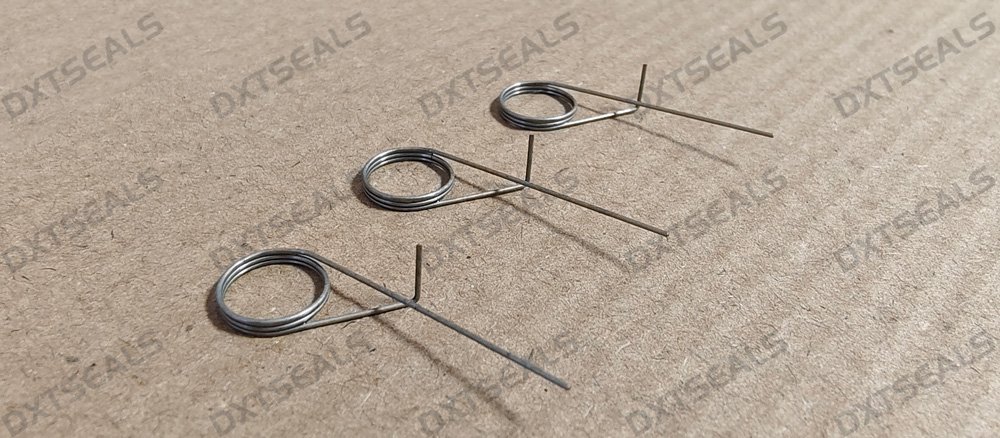Introduction
In the intricate mechanics of a piano, every component plays a crucial role in ensuring smooth performance and longevity. Among these components, high-precision custom springs are indispensable for regulating various functions within the piano's action mechanism, pedals, and keys. When it comes to selecting materials for these springs, 304 stainless steel stands out as the ideal choice due to its exceptional durability, resistance to corrosion, and excellent performance in high-stress environments. In this article, we will delve into the characteristics of high-precision custom springs for pianos and explain why 304 stainless steel is the preferred material for manufacturing these vital components.
1. The Role of High-Precision Custom Springs in Pianos
Custom springs are integral to the precise action and sound quality of a piano. These springs are used in various parts of the piano, including:
- Key Mechanism: Springs ensure the keys return to their original position after being pressed.
- Action Mechanism: Springs regulate the motion of hammers, ensuring consistent key strikes and accurate performance.
- Pedal Mechanism: Springs in the pedal system allow smooth operation of the pedals, which control the sustain and damping of notes.
The precision in designing and manufacturing these springs is critical. Even minor inaccuracies in their dimensions or tension can lead to inconsistent performance, affecting the overall feel and sound quality of the instrument. Therefore, high-precision custom springs are necessary to maintain the piano’s exceptional responsiveness.
2. Advantages of Using 304 Stainless Steel in Piano Springs
304 stainless steel is a versatile and widely used material known for its high strength, corrosion resistance, and ability to maintain its properties over time. Below are the key advantages of using 304 stainless steel for custom springs in pianos:
a. Superior Durability and Longevity
304 stainless steel is renowned for its ability to withstand harsh conditions without deteriorating. In pianos, springs are subject to constant tension and movement, which can lead to wear and fatigue over time. However, the superior strength of 304 stainless steel ensures that the springs retain their shape, elasticity, and functionality for many years.
- Benefit: Longer lifespan of the springs, reducing the need for frequent replacements or maintenance.
b. Resistance to Corrosion
Pianos, especially in varying environments (e.g., high humidity or extreme temperatures), require components that resist corrosion. 304 stainless steel offers excellent protection against rust and corrosion, even in moisture-rich environments, ensuring that the springs retain their performance without degradation.
- Benefit: Prevents rusting, maintaining the aesthetics and functionality of the piano for longer periods.
c. High Strength-to-Weight Ratio
Piano springs must be lightweight enough to allow for smooth and responsive key movements, but strong enough to withstand repeated tension. 304 stainless steel strikes the perfect balance by providing both strength and lightness, resulting in springs that are robust yet easy to handle in piano action mechanisms.
- Benefit: Ensures consistent key action without compromising on strength or responsiveness.
d. Resistance to Fatigue
The repetitive stress and bending experienced by piano springs require a material that can handle cyclical loading without suffering from fatigue. 304 stainless steel excels in this area, as it can endure many cycles of stress without losing its elasticity or shape.
- Benefit: Ensures that the springs maintain their effectiveness even after years of use.
e. Ease of Fabrication
304 stainless steel is relatively easy to fabricate and shape into custom-designed springs. Its versatility allows manufacturers to create high-precision springs that fit perfectly within the piano’s action system. Customization is essential to meet the specific needs of each piano model.
- Benefit: Enables the creation of finely tuned, high-precision springs for superior performance.
3. Applications of High-Precision Custom Springs in Piano Mechanics
High-precision custom springs made from 304 stainless steel can be found in various components of a piano’s action system, where they perform critical functions:
- Action Springs: These springs are responsible for providing the necessary force for the hammers to strike the strings with precise control. High precision ensures that each hammer responds uniformly, contributing to a consistent touch and tone.
- Pedal Springs: Pedal springs control the resistance of the sustain and soft pedals. The tension of these springs directly influences the feel of the pedals, which is critical for achieving the desired musical expression.
- Key Springs: Springs beneath the keys help return them to their resting position after being pressed. The balance of these springs ensures that the keys feel responsive and stable under the pianist’s touch.
4. The Importance of Customization in Piano Springs
Each piano has its own unique action mechanism, which requires precise spring design to ensure optimal performance. Customization is essential to achieve the correct tension, length, and form of the springs to match the specific requirements of the piano. Using high-precision custom springs made from 304 stainless steel allows manufacturers to meet these precise demands, enhancing the instrument's overall performance and reliability.
- Benefit: Custom springs provide perfect compatibility with specific piano models, ensuring the best possible playing experience.
5. Conclusion
High-precision custom springs made from 304 stainless steel are essential for the performance, durability, and reliability of pianos. The strength, corrosion resistance, and fatigue resistance of 304 stainless steel make it an ideal material for manufacturing piano springs that can withstand the demands of high-performance environments. Whether for the key mechanism, action system, or pedals, these springs play a vital role in ensuring a responsive and long-lasting piano. By using 304 stainless steel, manufacturers can guarantee the longevity and optimal functionality of their products, providing pianists with an instrument that delivers superior performance for years.

